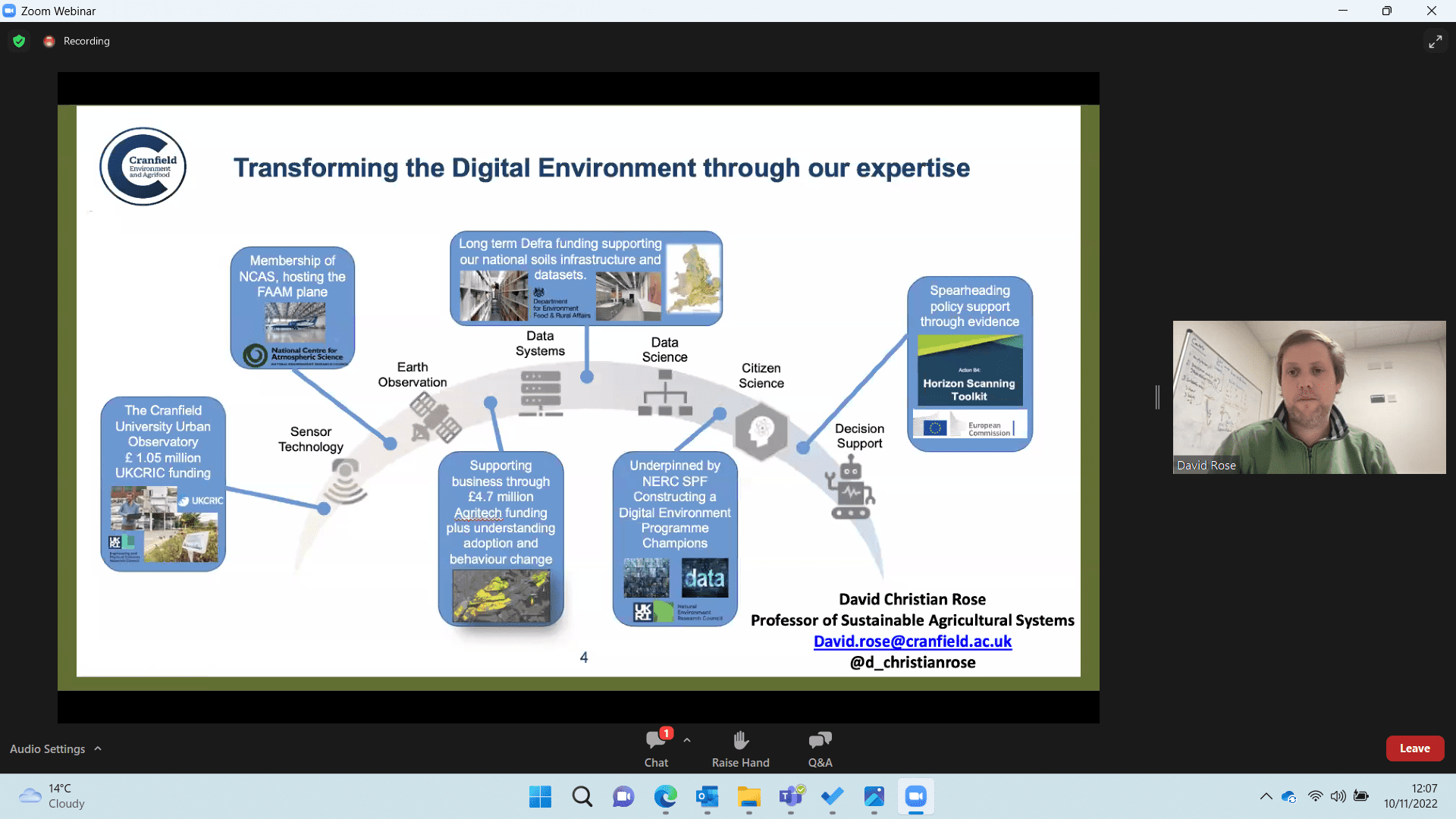The online event was part of Agri-TechE’s Agri Tech Week 2022, and offered insight into both the support services available, and real-life scale-up stories.
Opening the webinar was CHAP’s Head of Marketing and Communications, Janine Adamson. Mrs Adamson said: “Commercialising a great idea isn’t always simple, and can be a long winding road.”
“We wanted to offer a starting point for those looking for information about the support available to SMEs and early-stage entrepreneurs. But importantly, demonstrate what’s possible by showcasing two companies who are living it and making their innovation a marketplace reality.
“It’s important to encourage creative thinking and entrepreneurship within the agri-tech community, as innovation will be key in combatting huge global challenges such as dwindling resources and climate change.”
First to present was Cranfield University’s Professor David Rose, who discussed driving innovation into the hands of farmers, and the process involved. This included the ‘balanced readiness level assessment’.
“When thinking about the technology readiness element of the assessment, you need to be quite critical, to question whether it will work reliably in real farm conditions,” said Professor Rose.
“Knowing when it’s ready enough for farmers to use is important, because introducing something too early and experiencing failure will have an impact on trust.”
Following Professor Rose was CHAP’s Innovation Sector Lead Amy Farrington, who presented how the CHAP team provides support in delivering projects from idea through to impact.
Ms Farrington said: “We see innovation operating as a cycle that grows over time, that requires a range of expertise from across the chain to really understand the multiple facets of the multiple sectors required to deliver viable solutions.
“These solutions need to create fundamental shifts within the environment and within society.”
Providing the first real-life account of successful scaling up was FA Bio’s Dr Vijayalakshmi Gunasekaran, who spoke about unlocking the potential of soil microbes and the company’s innovation for sustainable agriculture.
“In the past 18 months, we’ve discovered five microbial fungicides for strawberries, collected more than 1500 prequalified microbes, established three commercial partnerships, grown our team and been granted patent applications,” said Dr Gunasekaran.
“We’re now looking to scale up our fermentation and formulation studies, achieve IP protection and secure new strategic partners and collaborations.”
To conclude the speaker line-up, Dr Michael Squance, Science and Technology Director for Terravesta discussed the OMENZ project, and the company’s work to drive UK Miscanthus production.
Dr Squance said: “We’re looking to scale up but we can’t achieve it alone without investment, innovation and working alongside other companies such as CHAP and Cranfield. Together we can have a massive impact on the green revolution.
“But it’s important to say that innovation is a long process, especially when working with a perennial crop. Terravesta turned 10 years old this year, and we’ve worked on a huge range of research projects, it’s a long-term commitment.”
To view a recording of the webinar, visit CHAP’s YouTube channel.
Interested in being involved in CHAP events, webinars or knowledge transfer? E-mail enquiries@chap-solutions.co.uk












